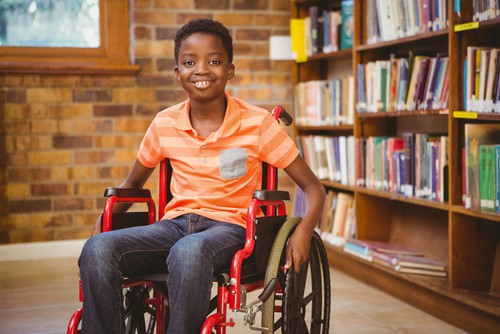PARENTING CHILDREN WITH DISABILITIES

All children, including those with disabilities, need love, respect, nurturing, and time, especially during difficult and uncertain times.
Keep your child safe
- It is strongly recommended that you follow local guidelines for COVID-19 while helping your child stay as active as possible both indoors and outdoors.
- Ask your local support team or intervention centers about special arrangements for the COVID-19.
- Keep emergency contact numbers where you can easily see it, such as on the refrigerator.
Ask for help if you can
- Share the load with other adult family members.
- You are not alone! Keep connected with people who understand your situation. Share your challenges AND your successes.
- It is normal to feel stressed, frustrated and afraid at this time.
- Be kind to yourself and take a break when you need to!
Be supportive, empathetic and loving
- Your child may not have the same support they usually have and this can lead to additional challenges, such as increased stress, anxiety and frustration.
- Use physical and verbal support to make your child feel accepted and loved.
- Positive body language, gestures and words make a big difference!
Communicating with your child
- Get down to your child’s level when communicating with your child.
- Maintain eye contact and a positive attitude.
- Take your time to allow your child the space to communicate.
- Observe, listen to and confirm that you understand your child.
Reinforce the positive!
- Reinforce strengths with praise and stimulate their abilities rather than highlight the things they cannot do.
- Only help children when they need it. Too much support denies them the chance to become independent and can feel patronizing.
Strengthen routines
- Routines help children feel secure and safe.
- Create a daily routine with activities that are familiar to your child and include some of their favorite activities.
- Help your child connect to friends and family members via phone chats, writing cards or drawing pictures.
- Provide your child with choices so that they have a sense of control. This also increases self-esteem.
- Use simple language and clear instructions and nonverbal communication for children who need it (for example: gestures, pictures, and visual aids). (Adopted from UNICEF)

